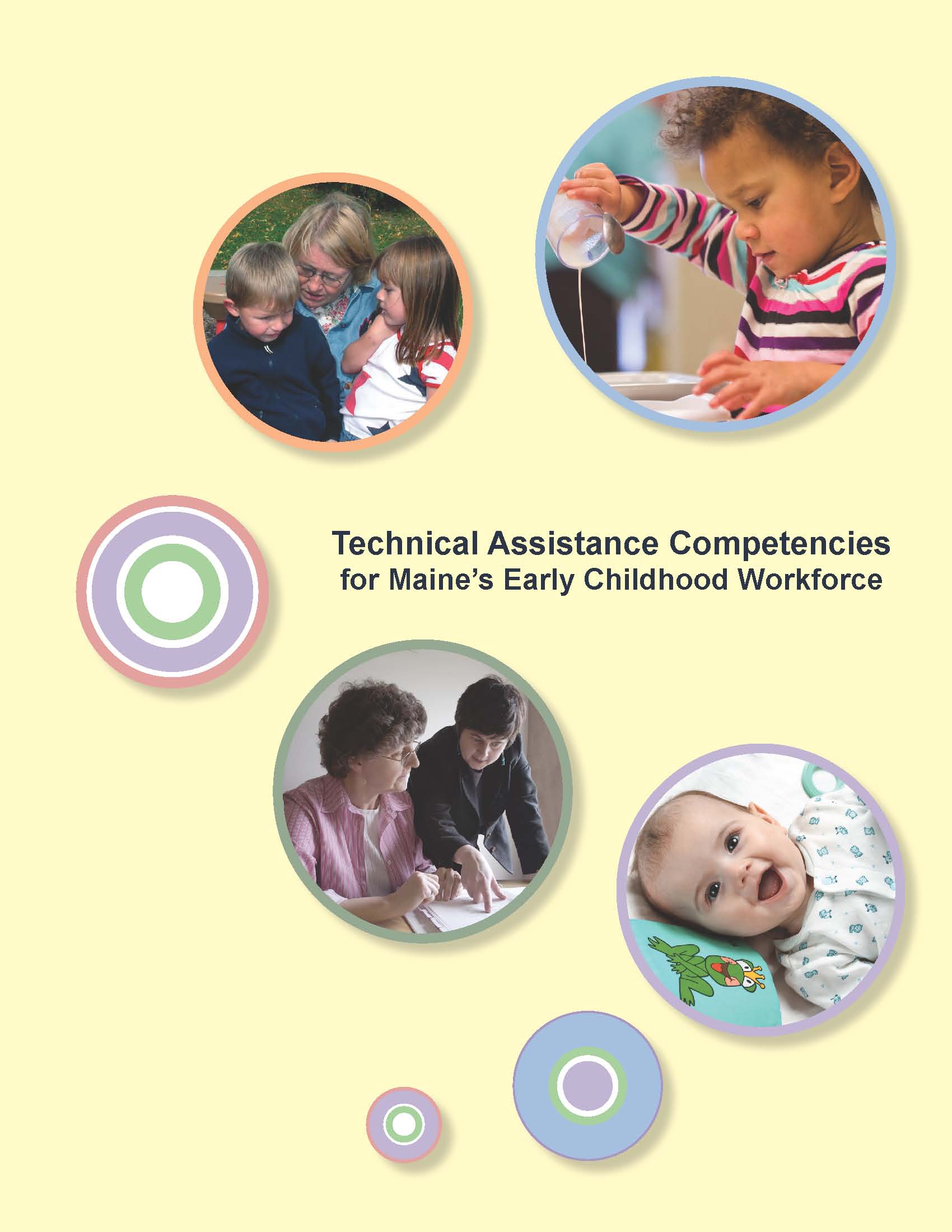Technical Assistance Competencies for Maine’s Early Childhood Workforce
In late June 2017, nearly 70 technical assistance (TA) professionals from a wide range of disciplines who support Maine’s diverse early childhood workforce gathered in Hallowell, ME for the rollout of the Technical Assistance Competencies for Maine’s Early Childhood Workforce.
- Are you a Head Start Director or in the process of developing a research-based coaching strategy for your education staff so that you are in compliance with the Head Start Performance Standards?
- Are you an agency that hires staff to facilitate peer-to-peer networks and needs an inventory of dispositions, knowledge, and skills necessary to hire the best staff?
- Are you currently working as an Early Childhood Mental Health consultant and want a tool to help assess your own consultation skills?
- Are you a public school administrator looking for contract and proposal language for procuring additional coaching resources?
- Are you in an organization that is looking to create a mentoring position and needs ideas for a job description?
Materials from this rollout can help you and are provided below at no cost. They are intended for use by all TA professionals working within the early care and education field in Maine.
The purpose of Maine’s Technical Assistance Competencies is to improve the quality of early care and education by providing professional development that supports a highly competent workforce and addresses some of the needs listed above. Download the Technical Assistance Competencies for Maine’s Early Childhood Workforce (2017).
The Technical Assistance Competencies for Maine’s Early Childhood Workforce Self-Assessment Checklist (PDF) is a companion to Maine’s TA Competencies. This checklist supports technical assistance (TA) professionals in assessing their skills within the five competency areas. Guided by the results of the self-assessment checklist, TA professionals can complete the professional development plan to identify areas for ongoing professional growth and development. The checklist can be downloaded and completed electronically.
- Download the Maine TA Competencies Rollout Presentation.
- Download the Match the Technical Assistance Request to the Technical Assistance Role Activity.
- Download the Maine TA Competencies Key definitions.
- Download the Maine TA Competencies Dispositions, Knowledge, and Skills Overview.
The free software program Adobe Acrobat Reader DC is required to complete the checklist electronically. Please download How to Use the Fill & Sign Tool in Adobe Acrobat Reader DC (PDF) for step-by-step instructions.
Technical Assistance Professional Dispositions (adapted with permission from the Infant Toddler Consultant Self-Assessment Tool)
Technical Assistance Competencies for Maine’s Early Childhood Workforce (Labas, Lavallee, Downs & Gallik, 2017) includes five attributes, known as dispositions, of effective TA professionals:
- Caring
- Communicative
- Creative
- Critical
- Professional
These dispositions were developed by an Administration for Children & Families Region 1 Workgroup for the Guide to Effective Consultation (PDF) and were informed by The Iowa Disposition Model: A Framework for Developing Effective Teacher Dispositions.
Because the Maine TA competencies adopted the same five dispositions, a section of the Infant Toddler Consultant Self-Assessment Tool (PDF) was adapted for use by Maine TA professionals. These two pages, Technical Assistance Professional Dispositions (PDF), can be used to assess their use of these attributes in their current practice. Please refer to this helpful Guide to Using the Infant Toddler Consultant Self-Assessment Tool with the Technical Assistance Competencies for Maine’s Early Childhood Workforce (PDF).